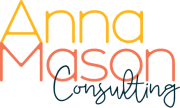The Crystal Ball for Employee Recruitment

Every hiring manager or executive has been there:
You’ve recruited for an open position. You’ve devoted significant financial resources to advertising or a recruitment agency. And now you have candidates in front of you, sitting across the interview table. Their resumes indicate that each of them is fully qualified, and they’re all professional, friendly, and prepared.
So how do you actually know who is right for the job? How do you truly evaluate if a candidate has the skills to excel? That they are a good culture fit for the organization? That they will stick around and grow?
What if you had a crystal ball that could help you predict how a candidate would perform in certain situations? I have good news: You do.
Behavioral Interviewing
Behavioral Interviewing is a tool that I help my clients use to ensure they hire the absolute best candidates for their open positions. The premise is simple: Past performance is the most accurate indicator for how someone will behave in the future. This is true of many facets of our lives, including in the workplace. Behavioral Interviewing uses highly specific questions about a candidate’s actual experience — how they have applied their skills in the past, how they have solved problems, how they have approached challenges — to assess the way they will perform in the future.
Often, interviewers want to get at the big picture, so they ask wide-ranging hypothetical questions (“Tell me how you approach conflict,” or “How do you stay organized?). But this approach delivers ideas, not actual behaviors. Behavioral Interviewing posits questions about actual situations, tasks, actions, and results that deliver much more specific and useful details about the candidate.
The Right Tool for the Times
Let’s face it: We are living in an unprecedented employment landscape. With record unemployment rates, the lingering impacts of the COVID pandemic, and The Great Resignation, companies have to work harder than ever to recruit and retain the right people.
In this environment, the employers I work with often don’t have the luxury of a large pool of applicants. Open positions remain unfilled for longer periods of time, stretching and stressing the existing workforce. There’s a lot of pressure to hire a great fit.
A recent article in Forbes magazine put it well: “With an exceedingly tight labor market, especially when it comes to hard-to-find skills, it might be tempting for some employers to overlook behavioral red flags in their hiring process. But every decision should be viewed through the lens of the potential cultural damage that could result.”
That makes this tool even more important. It gives hiring managers another important data point on who is in front of you at the interview table.
Putting It All Together
For my clients, Behavioral Interviewing has been a game changer. Recently, I worked with a client that was hiring for two open positions. They had three qualified candidates who made it to the interview phase. We reviewed the Behavioral Interviewing assessment for all three of the individuals, which allowed us to evaluate how each of them might adapt, flex, and grow. The tool showed us how they might take action, where they might need support or coaching, and how they would likely perform under pressure. As a result of the evaluation, my client decided to hire all three. They realized the candidates’ behavioral styles and cultural fit were exactly what the company needed to expand.
I work collaboratively with my clients, ensuring that they understand how to use the Behavioral Interviewing assessment – and indeed all of the tools and techniques I utilize – thoroughly and responsibly.
When utilized together with the suite of solutions I empower my clients with, we can together improve every point along the employee lifespan, from hiring to engagement to leadership development. Contact me today if you want to learn more about how Behavioral Interviewing could revolutionize the way you hire and onboard new team members. It’s the closest thing you’ll have to a crystal ball.
I would love to work with you and your leadership team as you rethink your review process. If you’re interested in workshops, one-on-one consulting, or learning more about PI, let’s talk!

